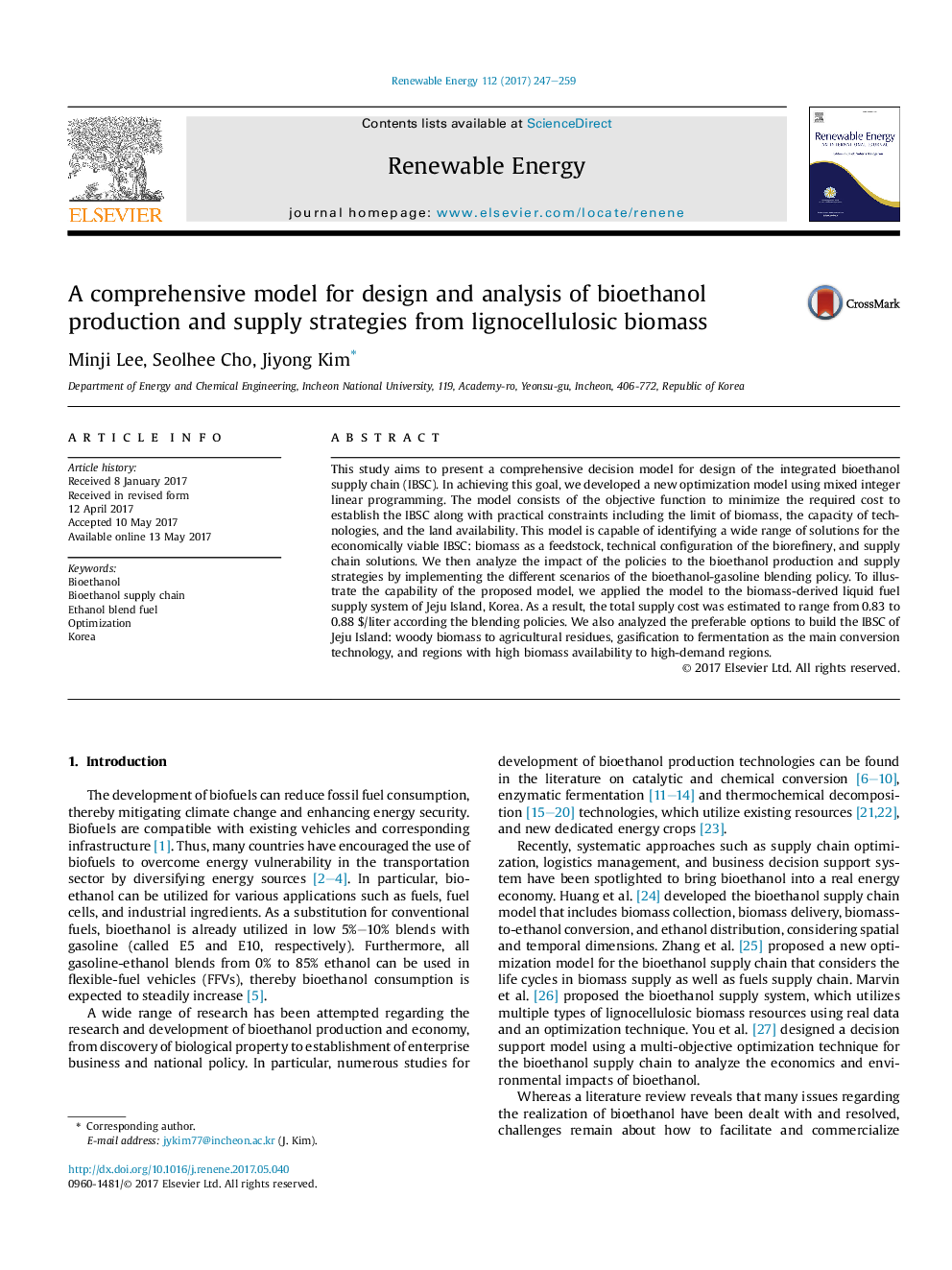| Article ID | Journal | Published Year | Pages | File Type |
|---|---|---|---|---|
| 4926128 | Renewable Energy | 2017 | 13 Pages |
Abstract
This study aims to present a comprehensive decision model for design of the integrated bioethanol supply chain (IBSC). In achieving this goal, we developed a new optimization model using mixed integer linear programming. The model consists of the objective function to minimize the required cost to establish the IBSC along with practical constraints including the limit of biomass, the capacity of technologies, and the land availability. This model is capable of identifying a wide range of solutions for the economically viable IBSC: biomass as a feedstock, technical configuration of the biorefinery, and supply chain solutions. We then analyze the impact of the policies to the bioethanol production and supply strategies by implementing the different scenarios of the bioethanol-gasoline blending policy. To illustrate the capability of the proposed model, we applied the model to the biomass-derived liquid fuel supply system of Jeju Island, Korea. As a result, the total supply cost was estimated to range from 0.83 to 0.88 $/liter according the blending policies. We also analyzed the preferable options to build the IBSC of Jeju Island: woody biomass to agricultural residues, gasification to fermentation as the main conversion technology, and regions with high biomass availability to high-demand regions.
Related Topics
Physical Sciences and Engineering
Energy
Renewable Energy, Sustainability and the Environment
Authors
Minji Lee, Seolhee Cho, Jiyong Kim,
